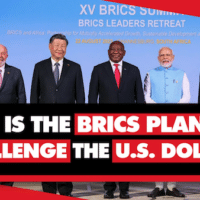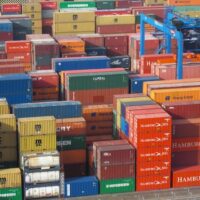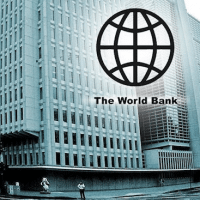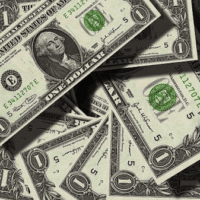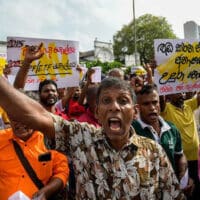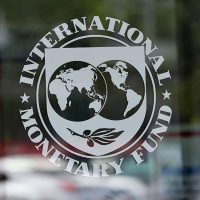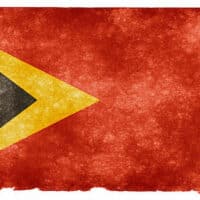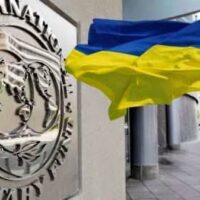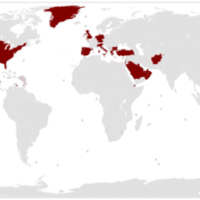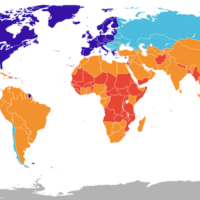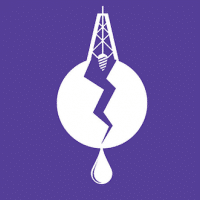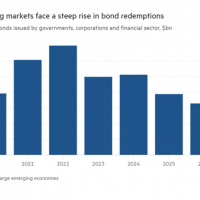-
BRICS plans ‘multi-currency system’ to challenge U.S. dollar dominance: Understanding Russia’s proposal
The BRICS Cross-Border Payment Initiative (BCBPI) will use national currencies, instead of the U.S. dollar. Russia’s finance ministry and central bank released a report detailing plans to transform the international monetary and financial system.
-
How Canada benefits from instability in Ecuador
Ottawa appears largely unconcerned by Ecuador’s social and institutional decay.
-
Pitfalls of export-led growth
THE wisdom of pursuing a strategy of export-led growth has been discussed among development economists for at least half a century, ever since the so-called East Asian “miracle” started to be contrasted with the comparatively sluggish growth experience of countries like India that were pursuing, in the World Bank’s language, an “inward looking” development strategy.
-
How the International Monetary Fund continues to shrink the poorer Nations: The Forty-Third Newsletter (2023)
At Tricontinental: Institute for Social Research, we continue to monitor the IMF’s impact on developing economies, including in our new dossier, How the International Monetary Fund Is Squeezing Pakistan (October 2023).
-
Debt-pushing as financial inclusion
Ajay Banga was anointed World Bank president for promoting financial inclusion. Thanks to its success and interest rate hikes, more poor people are drowning in debt as consumer prices rise.
-
The perilous path from Western domination to de-dollarisation
One of the major problems faced by Global South countries is that they are saddled with immense debts in dollars, and Western corporations claim ownership over their resources.
-
Sri Lanka’s dangerous domestic debt restructuring
The recent bailout agreement between the International Monetary Fund and Sri Lanka fails to address the economy’s structural problems. Instead, it focuses on highly regressive measures that disproportionately affect the working poor and are likely to exacerbate the country’s ongoing debt distress.
-
The IMF and its ideological orphans
There was a time when the International Monetary Fund’s “recommendations” on how to reorganize an economy were read, defended and executed as if they were a divine mandate.
-
The urgent need to repudiate debt
It is now time to react concerning the issue of debt cancellations and repudiations.
-
Twenty-two years of austerity in Timor-Leste: The IMF and rebuilding the neoliberal state from scratch
Timor-Leste was proclaimed by the Revolutionary Front for an Independent East Timor (FRETILIN) as a sovereign state on November 28, 1975.
-
The IMF connection with the Ukraine crisis
THE security concerns of Russia arising from Ukraine’s intentions of joining NATO have been widely discussed in the media. But the IMF’s link with Ukraine which is a parallel issue has scarcely received much attention.
-
Imperialism as an abiding phenomenon
The essence of the relationship of imperialism lies in the control over the world’s resources, including land-use, by the metropolitan powers.
-
The IMF’s announcement of $650 billion in Special Drawing Rights: advertising effect
The 190 countries that are members of the IMF are entitled to allowances in strong currencies which they do not have to pay back. This device is called Special Drawing Rights. To this we must add loans that the IMF can grant to a country calling for help. Loans must be repaid with interest and are tied to conditions that reinforce neoliberal policies.
-
Privatised health services worsen pandemic
Decades of public health cuts have quietly taken a huge human toll, now even more pronounced with the pandemic. Austerity programmes, by the International Monetary Fund (IMF) and World Bank, have forced countries to cut public spending, including health provisioning.
-
China eradicates absolute poverty while billionaires go for a joyride to space: The Thirty-First Newsletter (2021)
During this bleak period, in late February 2021, China’s president Xi Jinping announced that–counter to this general global downturn–China had eradicated extreme poverty. What does this announcement mean?
-
IMF, World Bank must support developing countries’ recovery
The COVID-19 pandemic continues to take an unprecedented human and economic toll, wiping away years of modest and uneven progress towards the Sustainable Development Goals (SDGs).
-
Climate and environmental crisis: Sorcerer’s apprentices at the World Bank and the IMF
In December 2020, on the occasion of the fifth anniversary of the signature of the Paris Agreement on Climate, the UN General Secretary sounded the alarm because the situation has fundamentally worsened. In this article we analyze what the World Bank and the IMF have done in connection with the environmental crisis and climate change.
-
Debt disaster with no escape
According to the IMF, about half of Low Income Economies (LIEs) are now in danger of debt default. ‘Emerging market’ debt to GDP has increased from 40% to 60% in this crisis.
-
Either socialism will defeat the louse or the louse will defeat socialism
The International Monetary Fund (IMF) says that the Great Lockdown, which has no end date, could very well lead to a loss of $9 trillion to global Gross Domestic Product over the entirety of 2020 and 2021; this number is greater than the combined economies of Japan and Germany. This scenario, the Fund’s managing director Kristalina Georgieva admits, ‘may actually be a more optimistic picture than reality produces’.

